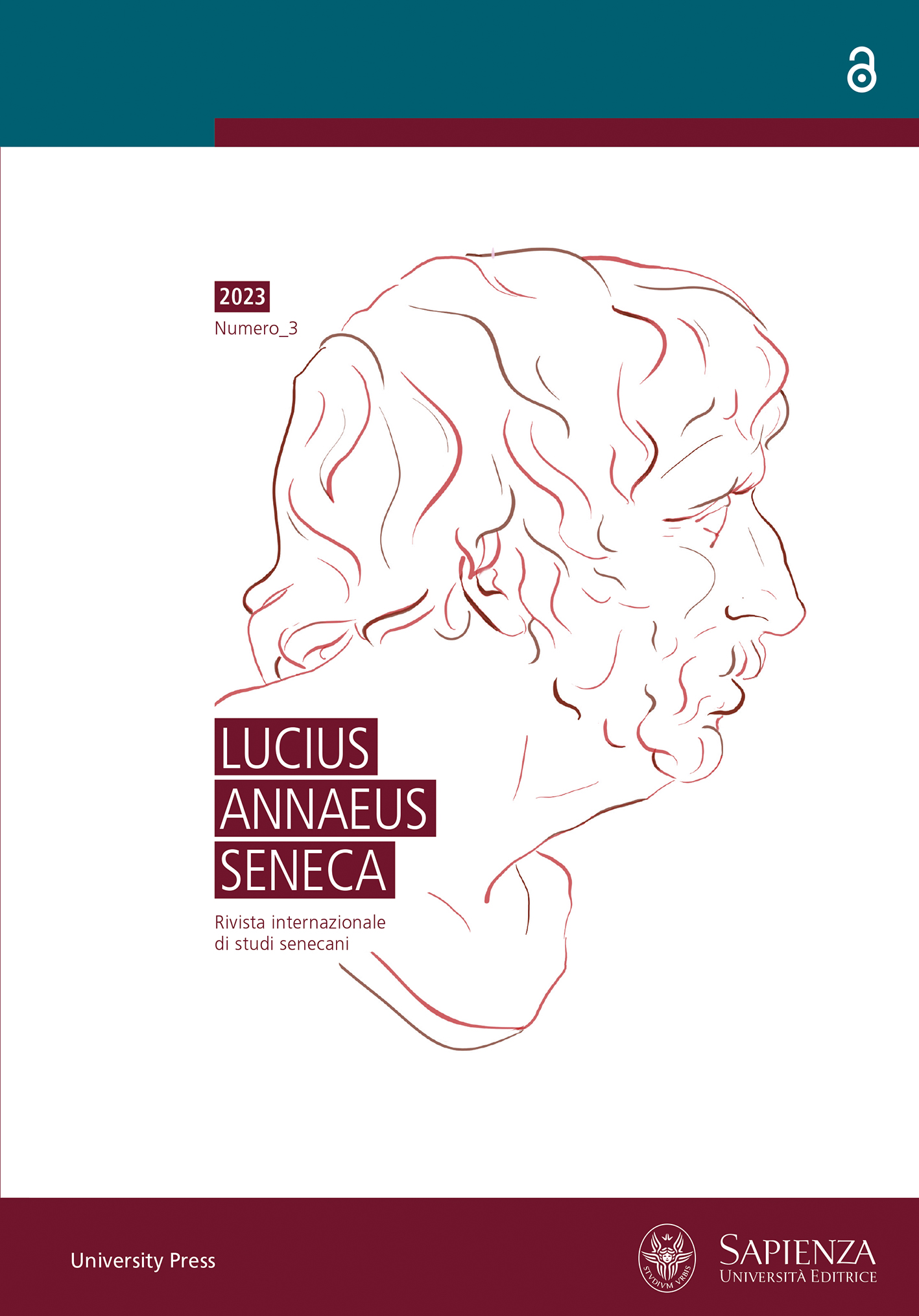Ethical Intellectualism in Seneca and the Roman Stoics: A Philosophical Trajectory From Plato’s Socrates to Patristic Philosophy
DOI:
https://doi.org/10.13133/2785-2849/2807Abstract
This article explores the meaning and role of ethical intellectualism in Seneca (in connection with his gnoseology and ethics) and, contextually, other Roman Stoics (Musonius, Persius, Hierocles, and Epictetus), against the background of ethical intellectualism in Plato’s Socrates, Plato himself, and ancient Stoicism. Some glimpses will be offered into the reception of ethical intellectualism in Patristic thought. The essay traces the chain of thought of this key theory in ancient philosophy, with attention to Stoicism and particularly Seneca, through to Patristic philosophy (especially here, scholars contrast ethical intellectualism with voluntarism, but not always on the basis of a careful assessment).##submission.downloads##
Pubblicato
2023-12-23
Come citare
Ramelli, I. L. (2023). Ethical Intellectualism in Seneca and the Roman Stoics: A Philosophical Trajectory From Plato’s Socrates to Patristic Philosophy. Lucius Annaeus Seneca, 3, 131–162. https://doi.org/10.13133/2785-2849/2807
Fascicolo
Sezione
Articoli
Licenza
Copyright (c) 2023 Ilaria L.E. Ramelli

Questo lavoro è fornito con la licenza Creative Commons Attribuzione - Non commerciale - Condividi allo stesso modo 4.0 Internazionale.


